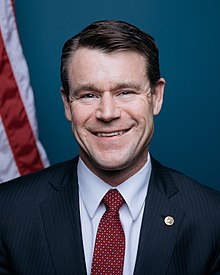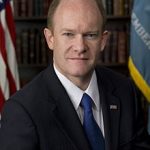
SOUTH BEND, Ind.–The U.S. may not have had a major terror attack on home soil, but that doesn’t mean terrorists have stopped. Finding ways to cut down on terrorism and violence around the world was part of a talk between senators Chris Coons (D-Delaware), and Sen. Todd Young (R-Ind.) at Notre Dame’s Keough School’s Kroc Institute for International Peace Studies, Alliance for Peacebuilding, Mercy Corps, and Search for Common Ground.

“Since 911 we’ve spent nearly six trillion dollars in combating violent extremism around the world, as a country. And, how are we doing? What are the results?” asked Coons. “Today there are more people displaced, there are more instances of terrorism and violence and there is less stability in the world.”
The senators are pushing passage of the Global Fragility Act, to ultimately reduce the number of countries that go into anarchy and become terrorist states.
“We now have somewhere north, the U.N. tells us, of 400 violent conflicts world-wide,” said Young.
“Conns said the military-led, Dept. of Defense-led counter-terrorism strategy, has not been successful, so far. He and Young believe diplomacy and development can work just as well, or better, along side a defense strategy.
“We are frankly playing Whack-a-mole and there are more moles than we can whack,” said Coons. “And we frankly need to take a step back and look at the processes that lead to fragility and lead to instability.”
Young said he believes government has not been successful because the people who are working on the problem are often doing it in separate areas of government. The new 10-year plan would bring them together.
“As the old saying goes, we tear down the walls and connect the dots between often times very talented individuals,” he said.
The Act would also establish a new multi-donor fund to leverage resources from public and private partners around the world to combat this national security threat. The bill passed the Senate Foreign Relations Committee with strong, bipartisan support June 25.


